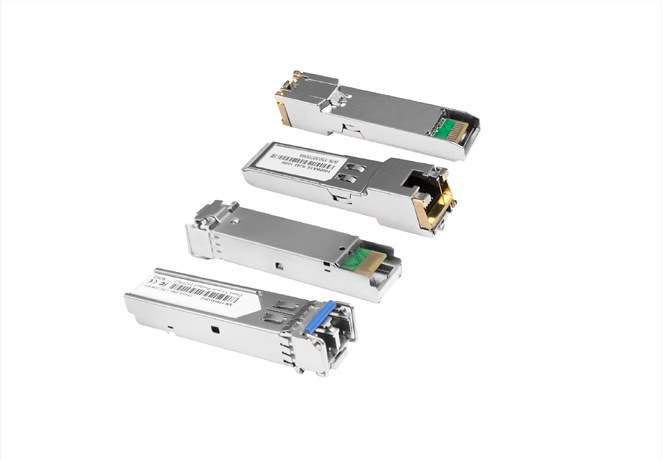Optical modules are optoelectronic devices that perform photoelectric and electro-optical conversion. In short, the function of the optical module is to convert the electrical signal into an optical signal at the sending end, and after transmission through the optical fiber, the receiving end converts the optical signal into an electrical signal. Optical modules are classified according to the package form, and the common ones are SFP, SFP+, SFF, Gigabit Ethernet Interface Converter (GBIC), etc.
Many people may not know that optical modules are an integral part of all network connectivity deployments.The appearance of a product often corresponds to the market demand. Most of the optical modules we usually come into contact with can only meet the network deployment of commercial data centers. How to meet the needs of large-scale industrial network deployment? In this case, the industrial optical module was born. So, what is an industrial-grade optical module?

The working temperature of an industrial-grade optical module is one of its most important parameters -40°C~85°C, which can work in harsh environments ranging from minus 40°C to 85°C. When the ambient temperature used by the optical module changes, its other parameters such as working current will also change accordingly, thus affecting its normal transmission. Industrial-grade optical modules are products developed to slove this problem, while the normal working temperature of ordinary optical modules is 0~70°C. In addition, industrial optical modules must design scene hardening components in electrical components, housings, etc. to ensure the service life of the optical module.
The main reference standard of industrial optical modules is its working temperature, so how to achieve this standard?
1. Hardware compliance: The chips and lasers used in industrial-grade optical modules must use products that reach industrial temperature levels.
2. Physical cooling: Industrial optical modules must have a self-cooling function in order to work stably at high temperatures. Industrial optical modules mainly use heat-dissipating silica gel for physical cooling, so that the heat generated by the laser can be dissipated as quickly as possible.
3. Temperature compensation: When the industrial optical module works in a low temperature below zero, in order to keep its performance unaffected, it must be temperature compensated to ensure its normal operation at low temperature. The work of temperature compensation is more complicated, and it takes a lot of time for technicians to calculate and write.
Due to the physical cooling and temperature compensation of the industrial-grade optical module, its raw material cost and manufacturing cost increase. Therefore, when the parameters such as transmission rate and wavelength are the same, the price of industrial-grade optical modules is often more expensive than that of commercial-grade optical modules.
Industrial-grade optical modules are mostly used in industrial Ethernet networks such as industrial fiber media converters or Ethernet switches in industrial and factory automation, outdoor applications, railway and intelligent transportation systems, marine, oil, gas, mining and other fields. Industrial optical modules can meet the lasting stability of industrial Ethernet in harsh working environments.
How to choose industrial optical modules and commercial optical modules
The working temperature of industrial optical modules is wider than that of commercial optical modules, and the performance is more stable. Therefore, in an outdoor environment with a large temperature difference, such as a tunnel, an industrial-grade optical module must be selected, because compared with commercial-grade optical modules, its safety and reliability are higher; and in an indoor environment with a relatively stable temperature difference, for example, in the computer room, industrial-grade optical modules and commercial-grade optical modules can meet the actual application requirements, but considering the wiring cost, commercial-grade optical modules can be selected.
Contact: sales
Phone: 18688787693
E-mail: sales@hsindustrialswitch.com
Add: Room 608, Building B,GaoXinQi TEC Park,Baoan District, ShenZhen,China